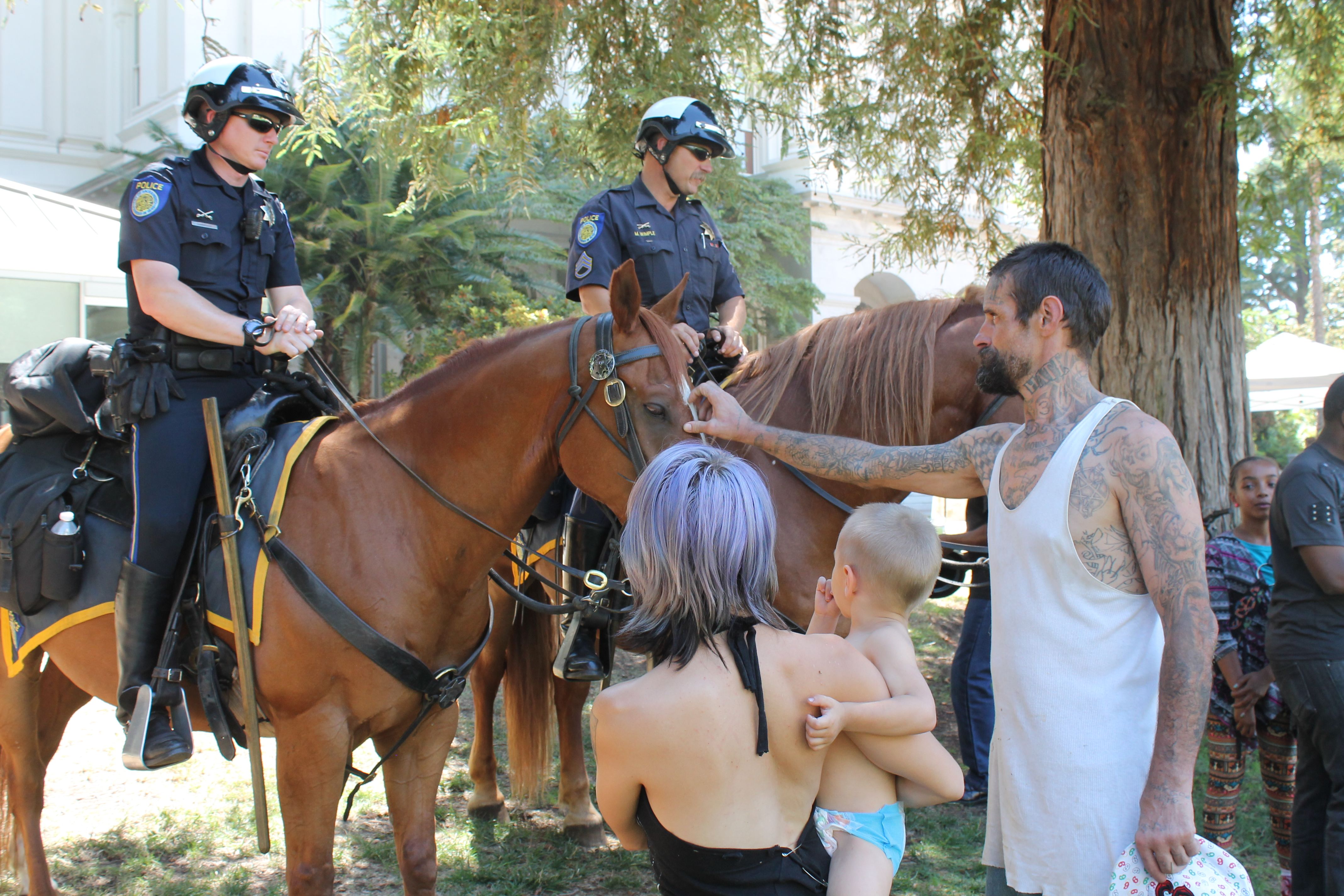SACRAMENTO — David A.R. Barnitz surveys the lawn on the north side of the State Capitol–the handful of tents, the small circle of activists seated in the shade. This is not “the nirvana I was hoping for,” he admits.
Still, as roughly 50 people gathered Thursday in the sweltering 97-degree heat for the start of the four-day Occupy National Gathering, he was encouraged by the “unity” and “sense of purpose” among those present.
“It’s Occupy in its evolutionary stages,” he says hopefully.
In the fall of 2011, thousands gathered in lower Manhattan for Occupy Wall Street, and thousands more staged similar demonstrations around the nation and across the world. The message of the protests–the “99%” versus the “1%”–remains the same, and is still reflected in political debates, as Democrats use themes of inequality to motivate midterm election voters.
Yet the momentum of Occupy seems to have faded entirely. To Barnitz, who goes by the nickname “Gandolf” among fellow Occupy activists, owing to his distinctive white beard, Occupy’s struggles are largely the result of suppression by the government–and the media.
“It’s a 1% takeover,” he says, claiming that Sacramento has passed a series of ordinances making it more difficult for Occupy to stage its customary long-term protests.
Barnitz stresses that the group has been eager to obey local laws and avoid confrontations with police. One activist interrupts proceedings with the customary “mic check”–this time involving an actual microphone–to remind everyone that the conditions of their permit require them to obey local ordinances regarding disposal of cigarette ashes. In 2011, Occupy protests were typically illegal, and faced off against local police for weeks.
“Stop raping people,” Barnitz shouts, in mock imitation of the late Andrew Breitbart, who famously tried to draw attention to Occupy’s lawlessness in an intense confrontation with hundreds of demonstrators outside the Conservative Political Action Conference in Washington, D.C. just weeks before his death in 2012. (Breitbart’s death “didn’t trouble me,” Barnitz says, upon learning which news outlet this correspondent represents.)
A few mounted police watch the gathering placidly, lingering in the shade. The gathering, thus far, is decidedly non-confrontational. A toddler wanders up to the horses, followed closely by his attentive mother; they are among the few younger people present. Most of the activists appear to be in their 40s or older.
Indeed, if Occupy was, as Breitbart maintained, an extension of the 1960s anti-war movement, it has returned to its roots.
Steven Bourasa, a Sacramento local, suggests hopefully that turnout may increase towards the weekend. Yet it is clear that the organizers are rather disappointed. They expected 1,000 to turn out, but “it ended up that we just had to make do,” Barnitz says somewhat ruefully.
To some extent, the movement is a victim of its success: its “99%-versus-1%” meme was co-opted by the Democratic Party, together with much of its political agenda. And the mainstream media, which saw the Occupy movement as a potential counterweight to the conservative Tea Party, lost interest after the 2012 election. Barnitz accuses the “1% media” of killing the Occupy movement through deliberate neglect.
Still, with the left searching for an alternative to Democratic heir apparent Hillary Clinton, a revival of interest is always a possibility. “We may still be alive in a year,” Barnitz says hopefully.

COMMENTS
Please let us know if you're having issues with commenting.